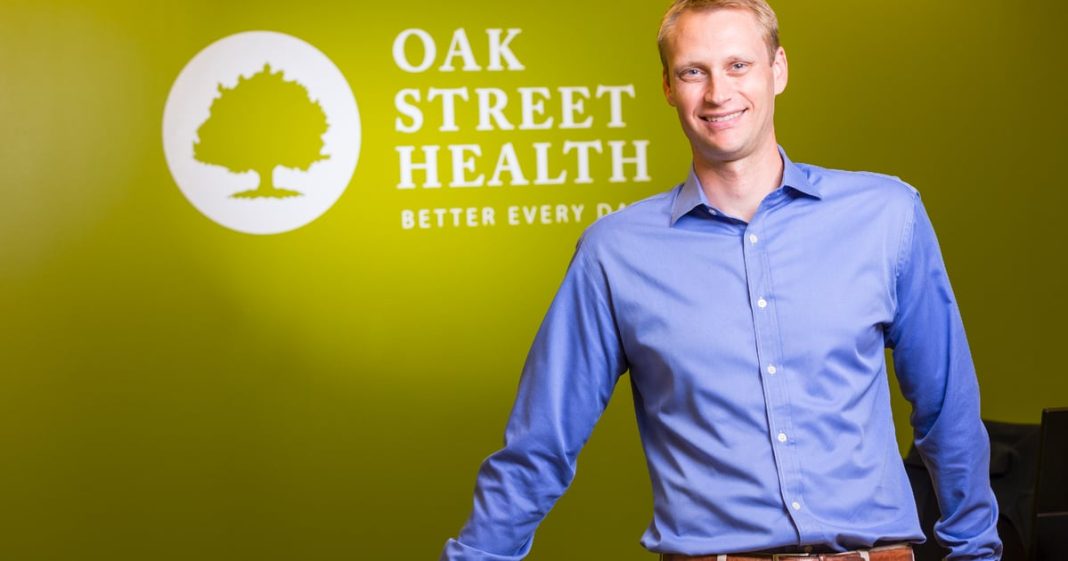The amount Pykosz will clear in the deal depends on the composition of his holdings among shares owned outright, shares subject to unexercised stock options and unvested restricted stock. According to the merger agreement, shares owned outright will convert to cash at the deal price, option shares will convert to cash in amounts equal to the excess of the deal price over the option strike prices, and unvested restricted stock will convert to CVS Health restricted stock. Oak Street hasn’t yet provided a detailed breakdown of Pykosz’s holdings.
The buyout bonanza wouldn’t be Pykosz’s first lucrative sale of Oak Street stock. He sold more than $68.7 million worth of shares at prices ranging from $30 to $64 apiece in a series of transactions since Oak Street went public in 2020, according to SEC filing data compiled by GuruFocus.
Oak Street declined to comment on the figures. Pykosz is expected to stay with the combined companies and lead Oak Street, which he co-founded a decade ago.
Pykosz’s potential payout could exceed some of the biggest for Chicago CEOs who have sold companies in recent years. For example, Horizon Therapeutics CEO Tim Walbert is expected to make $150 million in his company’s pending sale to Amgen. Former Hospira CEO Michael Ball was expected to take home $80 million when Pfizer acquired his company.
“It’s a huge payday,” says Mark Reilly, managing director at Overture Alliance, an executive search and compensation consulting firm. “But when you’re a founder and you start a business and you grow it, it’s not unusual to have something like that happen.”
Not a Modern Healthcare subscriber? Sign up today.
Pykosz launched Oak Street Health in 2012 alongside Dr. Griffin Myers and Geoffrey Price to provide primary care to people on Medicare. By offering a value-based care model and additional support to low-income patients with chronic health problems, Oak Street claims it can reduce hospitalizations and the high costs associated with them.
Oak Street now employs about 600 primary care providers in 169 medical centers across 21 states. Before going public, the company raised more than $400 million from investors, including private-equity firms General Atlantic and Newlight Partners, which collectively own about 39% of the company, according to SEC filings. Bloomberg reports General Atlantic stands to make $3 billion on the deal.
Although Oak Street has been in business for more than a decade, it has emphasized growth over profitability. The company posted revenues of $1.6 billion in the nine months ended Sept. 30, up 52% from the same time period last year. But Oak Street’s losses rose nearly 40% to $376.2 million over the same period.
CVS’ buyout price is about 73% higher than Oak Street’s stock market value before reports first surfaced in January about the deal. But the $39-per-share buyout price equals Oak Street’s closing stock price the day it went public on Aug. 7, 2020. Oak Street’s stock hit a high of $64.99 in February 2021 and a low of about $16 in June 2022.
This story first appeared in Crain’s Chicago Business.







